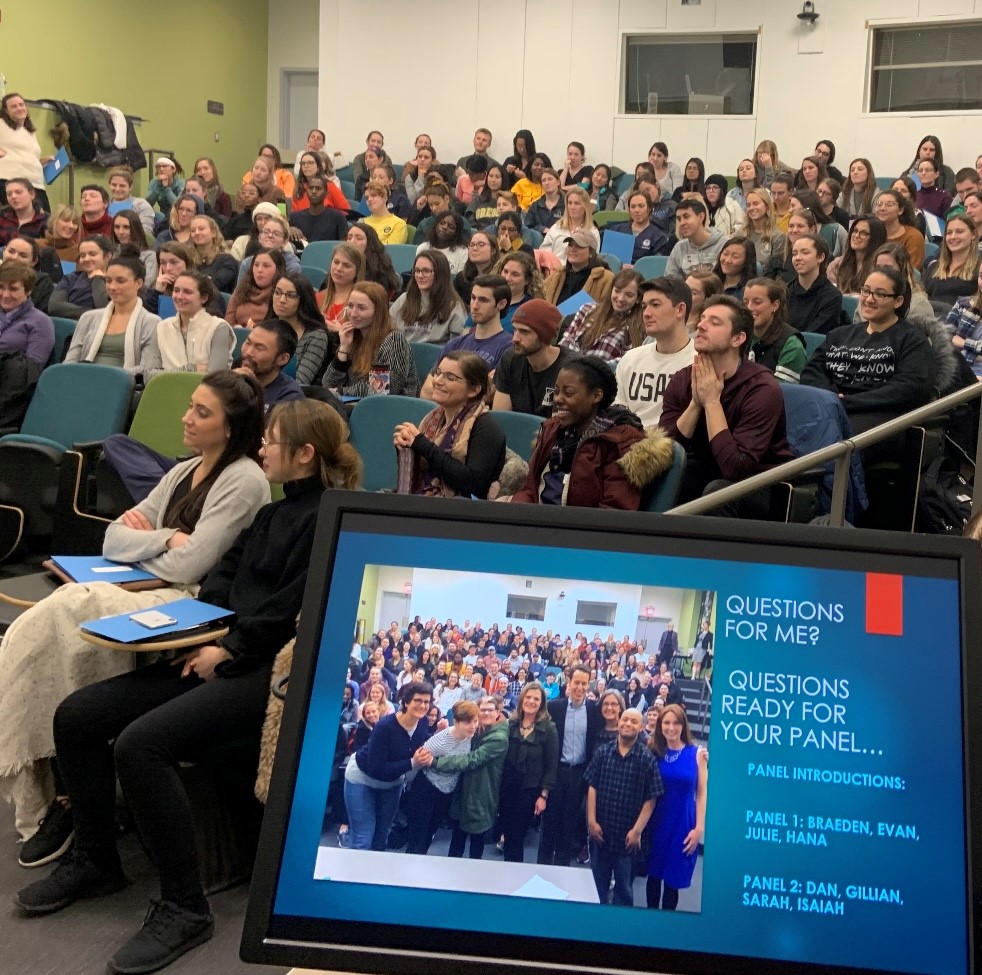Advocates and Friends,
It is the time of year where we prioritize legislation that has been passed favorably and is in position to cross the finish line and become law. It’s the final push from all of our efforts over the last two years since bills were filed. Operation House Call, S2615, “An Act improving healthcare for patients with intellectual and developmental disabilities including autism,” is one of those bills. Let’s take a deeper dive into just what our Operation House Call is all about.
If you support this legislation, it won’t fix all the healthcare issues and experiences for people with autism and IDD but here’s what it will do!
- Expose young medical students and other healthcare professionals to a wide range of individuals on the spectrum and with IDD and their families including those with intersecting marginalized identities. The students will learn directly from people with disabilities and their family members. This helps to decrease bias and stigma that can affect treatment and assessment. They learn to see the whole person and not just their disability, presume competence and looking beyond behaviors to any potentially underlying medical issues.
- Experiential learning also allows medical student to understand complex disabilities like Autism through personal stories.
- Students learn about the importance of communication, especially speaking directly to their patient regardless of their ability to verbally speak back. They learn that every individual deserves the respect of connection as well as time to process questions.
- They learn about the balance that is often needed – to hear from their patient to learn about other forms of communication but also to turn to parents, and other caregivers. This approach and partnership allow the doctor to provide the best care possible!
- The students become more curious about the medical needs of patient’s autism and IDD beyond the textbook. The students gain important insights on comorbidities and often overlooked conditions.
- This program has over 250 families that volunteer and provide tips for students. They begin to understand important universal accommodations but that every individual is different and needs an individual approach to care.
- All of this learning early in their medical education, builds confidence and willingness to treat patients with disabilities. The aim is to improve access and decrease health disparities.
- The program is building champions, people who will be models in the healthcare community.
Medical professionals currently do not receive adequate clinical training regarding care of patients with autism and IDD.
- Less than a dozen U.S. medical schools offer a curriculum specifically designated towards addressing the needs of patients with autism or IDD.
- The Institute of Medicine deemed a lack of provider education and disability awareness as one of the greatest barriers to care faced by this population.
S2615 will codify OHC, which is currently at four medical schools and 3 graduate nursing school, as well as allow for expansion. It will provide oversight and establish an accredited certification program for medical professionals focusing on best practices in healthcare for individuals with autism and IDD.
Thank you for your support of this program and your advocacy. You can use this action alert to write to your Senator and Representative and ask them to support this bill through to passage!




